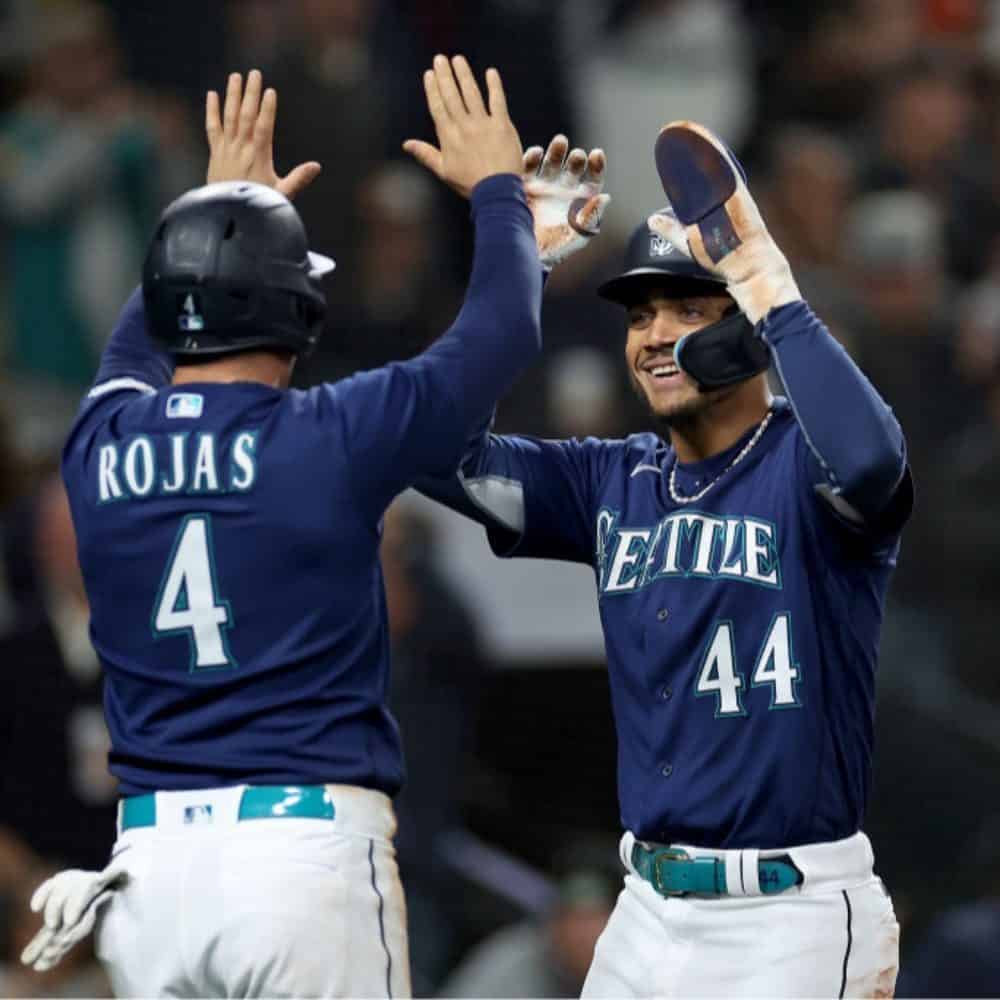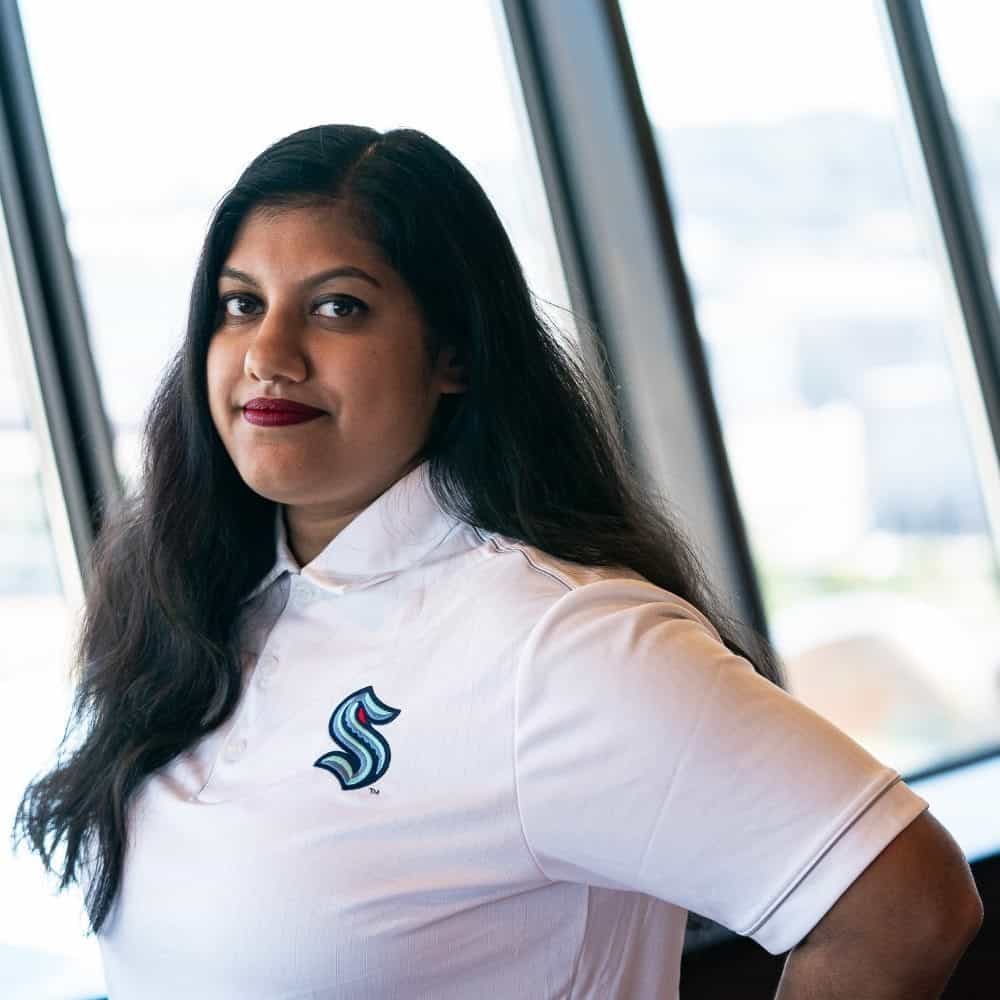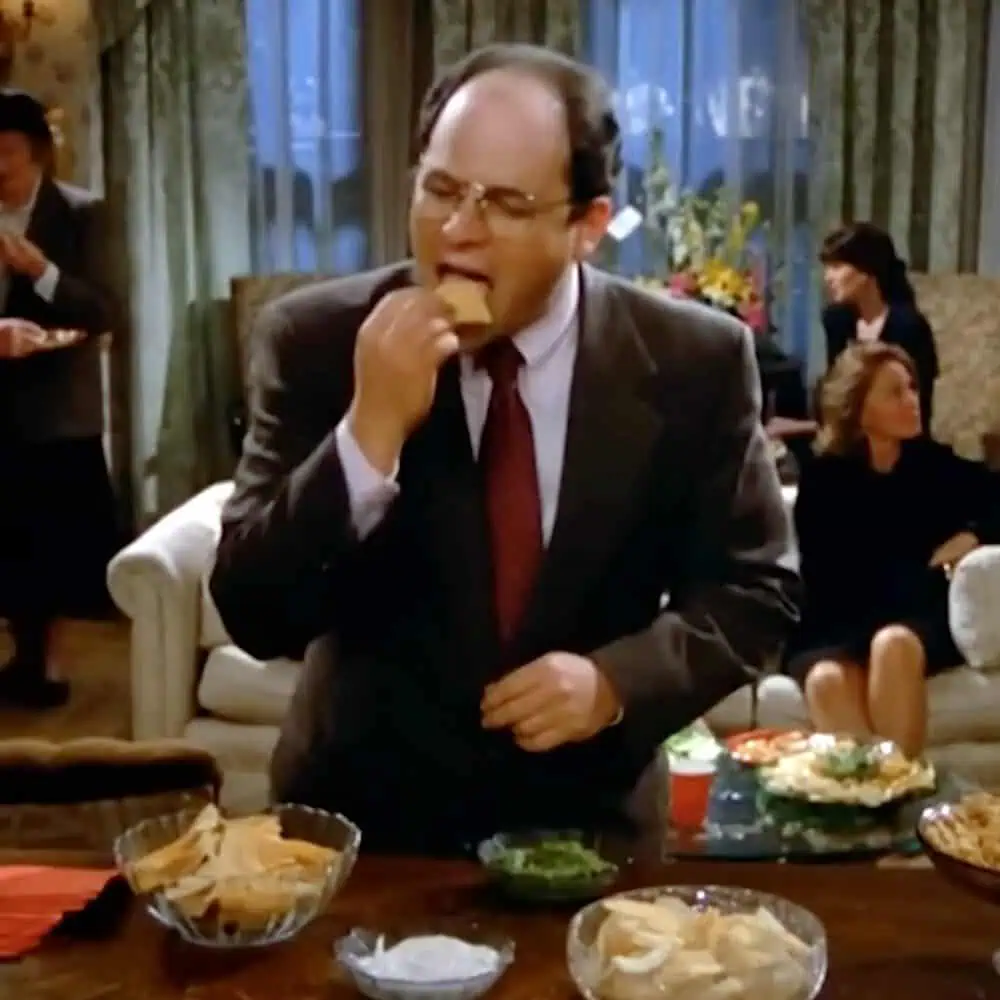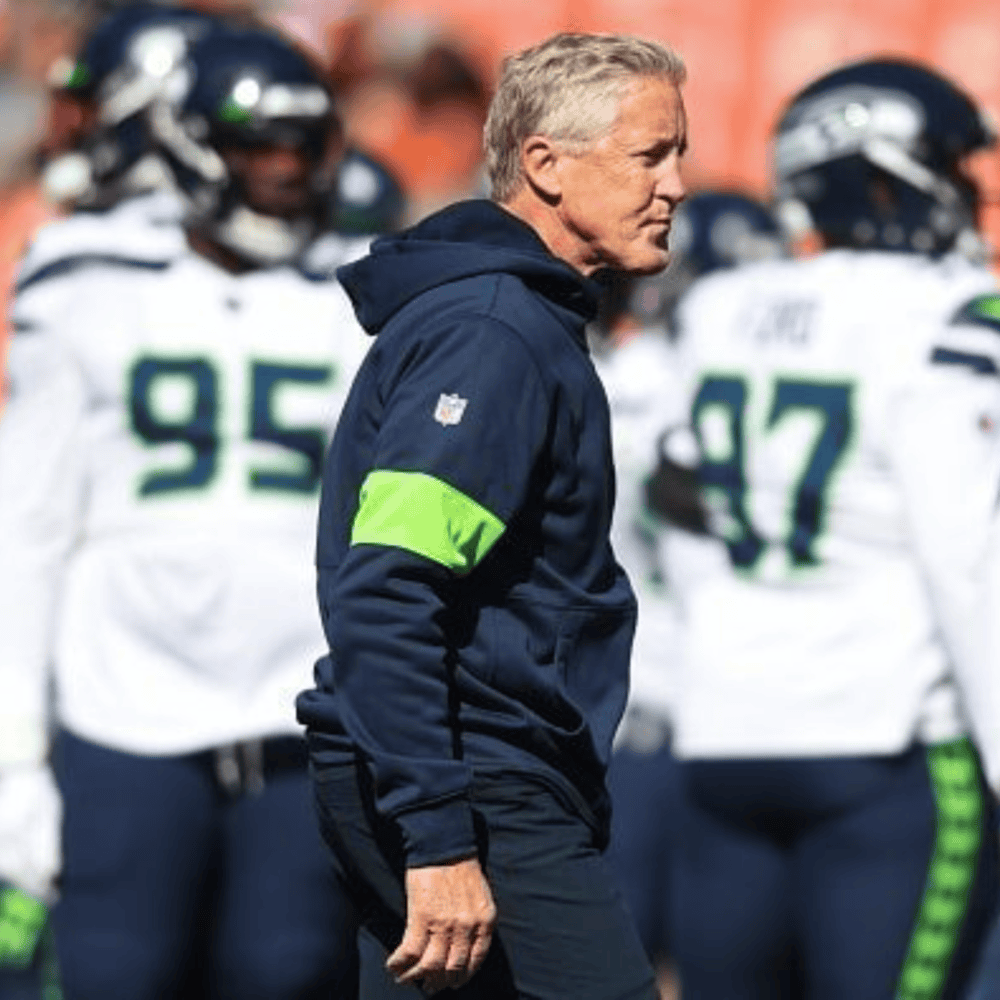Features
The Pursuit of Nobility: Interview with Lenny Wilkens
One of Seattle’s greatest sports icons eyes return of NBA
By Rob Smith February 3, 2023
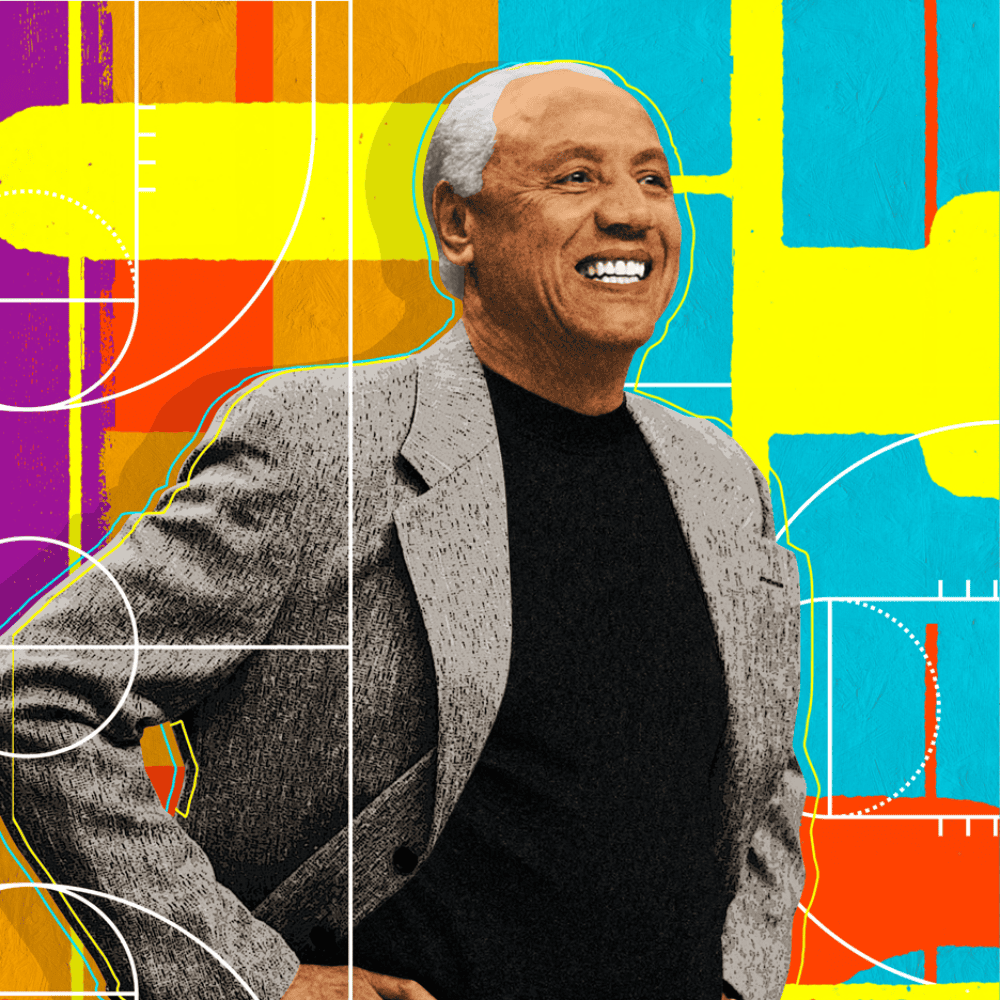
This article originally appeared in the January/February 2023 issue of Seattle magazine.
On a recent edition of three-time Emmy-award winning sports TV talk show “Pardon The Interruption,” cohost Michael Wilbon heaped lavish praise on NBA legend and Seattle icon Lenny Wilkens in celebration of his 85th birthday.
Wilbon noted that he’s a “basketball Hall of Famer three times over” [as a player, coach and assistant coach of the 1992 Olympic Dream Team], was named to both the 50th and 75th anniversary All-NBA teams, coached six different clubs and, of course, led the 1979 Seattle SuperSonics to the NBA title. Wilkens also served as a player-coach four different times and was named one of the best 15 coaches in NBA history. He retired as the winningest coach in NBA history and still ranks No. 3. He was also part of the 1964 NBA All-Star game that players almost boycotted because they demanded pensions and other concessions. The NBA gave in, setting the stage for higher salaries and better working conditions.
Wilkens, who played for the Sonics from 1968 through 1972, has also been involved in numerous charitable activities. His Lenny Wilkens Foundation works to provide access and health care to children, and has donated more than $8 million to the Odessa Brown Children’s Clinic since 1971. He recently had a street named after him near Climate Pledge Arena, “Lenny Wilkens Way,” and last October, was honored with “Lenny Wilkens Day at Seattle Center.”
Wilkens has been a tireless advocate to return the NBA to Seattle. As rumors persist once again — this time involving imminent expansion to Las Vegas and Seattle — Wilkens weighs in on the importance of professional basketball here, why it’s beneficial far beyond the world of sports and how today’s NBA stacks up.
How important is it for Seattle to get the Sonics back? Very important. It’s another activity downtown. If I were mayor, I would’ve gone to Microsoft and Amazon and said, “How do we keep our city first class?” Sports is a part of it. The Sonics still have great fans. And they were active in the community.
How imminent do you think an NBA franchise is? I think [Seattle Mayor Bruce] Harrell is a good guy. He’s got a lot on his plate, but he’s trying. And hopefully he’ll get the support that he needs. But the Sonics are going to be back eventually. I’m 100% convinced. It’s just a matter of when. I wish I knew. But I want them back. I feel like I could help in the community.
Are you surprised it’s been 15 years? I thought it would happen sooner, but no one pushed it until we got the arena remodeled.
Were you excited when Seattle almost got Sacramento’s franchise in 2013? [At the time, a new stadium was being considered in Seattle’s SODO district, and the owners of the Kings were reportedly in discussions with a group in Seattle that included Chris Hansen, then-Microsoft CEO Steve Ballmer, as well as Eric and Pete Nordstrom]. I didn’t like how they did that. I thought it was poorly handled and I said so. I pissed [former NBA Commissioner] David Stern off. I told [former Sonics Executive] Wally Walker how I felt. He’d ask to see what was going on, and I wouldn’t give him any information.
Many fans say on various Sonics social media boards that they want an expansion franchise, not a team moved from somewhere else. What’s your thinking? Either way. But that’s just me. Expansion is a way to unload players. If you did expansion, you better surround yourself with strength so that you know who you are picking. In the past, [other teams have been allowed to protect] eight or nine players so only three are available. And you may not want any of those three. You don’t want to be stuck with a salary where a guy can’t produce.
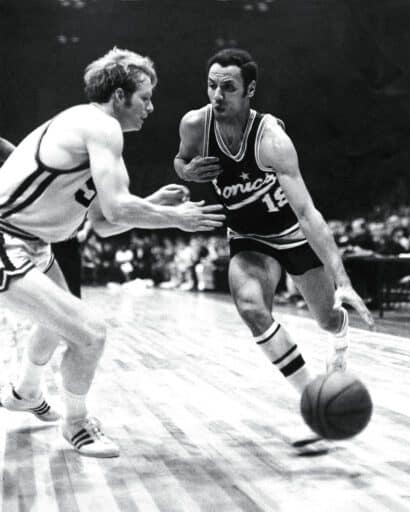
Lenny Wilkens Seattle Supersonics 1968 With Van Arsdale of Cincinnati (Photo by Malcolm W. Emmons/Sporting News via Getty Images)
Getty Images
How important is political will to get the Sonics back? Very. I think [state legislators in Olympia] handled it very badly when the Sonics left.
When did you realize the Sonics might leave? I was a consultant when Clay Bennett bought the team. I don’t like Clay. When he went down to Olympia and demanded they build a building or else he was going to leave, I went to Clay and said I was resigning. I didn’t want to be part of him moving the team. I knew his connections were in Oklahoma. He wasn’t paying any attention to try and make it here.
Did you think about leaving Seattle? I just loved being here and in Portland. Seattle was my home. I could have gone other places. But I just knew everybody.
Any danger the Sonics will take a backseat to the Kraken, since they were here first? No. Lots of cities have two teams. The Boston Bruins and Boston Celtics have coexisted for a long time and still do. And Climate Pledge Arena is a beautiful place. It can support hockey, basketball, concerts. It can all peacefully coexist. It’s just a matter of scheduling.
The NBA has changed significantly. What stands out to you? Back then, if you didn’t pass the ball, you didn’t play. The guys were prepared. They knew how to cover each other, how to get through the screen and roll. [Today] the defense is terrible. It could be so much better if you put a premium on it.
How has money changed the game? The money doesn’t bother me. I’m happy, because I was a player [union] representative and I helped get us a pension, better per diem, full-time trainers, stuff like that.
Do you do a lot of mentorship now with current NBA players? No, because we don’t have a team here. What happens then is you kind of get lost. I always says I’m the NBA’s best-kept secret. But there are people I know, when they have something going on, they want me to come make appearances, so I do that. But when the Sonics were here, I was always making appearances.
Who were the toughest guys to play against? Jerry West was tough. Oscar Robertson, because he could shoot so well. Hal Greer. Jerry Sloan. Sam Jones.
Who is your favorite current NBA player? I don’t know if I have just one. There are a lot of talented young men. Luka Doncic of Dallas is one. Giannis Antetokounmpo [Milwaukee]. He can play. Ja Morant [Memphis]. He can play.
What’s the future of the Lenny Wilkens Foundation? We have to figure a few things out to raise funds. We’re involved so much with the Odessa Brown Children’s Clinic because when I first came, it became my favorite charity because I met two women who sort of adopted me and my wife, and they were very active in the community. I was impressed at how they always treated young people in the community.
Why the focus on kids? They’re our future. They’re tomorrow’s doctors, lawyers, athletes and politicians. And they have to know that they can fit in. And health care is so important because so many people can’t afford it, and that’s the beauty of the clinic. Regardless of their ability to pay, they got the health care they needed.
What advice do you give to young ballplayers? Have fun. If you enjoy what you do, you’ll do it better, and if you do it more often, you’ll like the sport because you’ll get better at it. I liked everything about basketball. Defending, passing the ball, getting to the basket.

